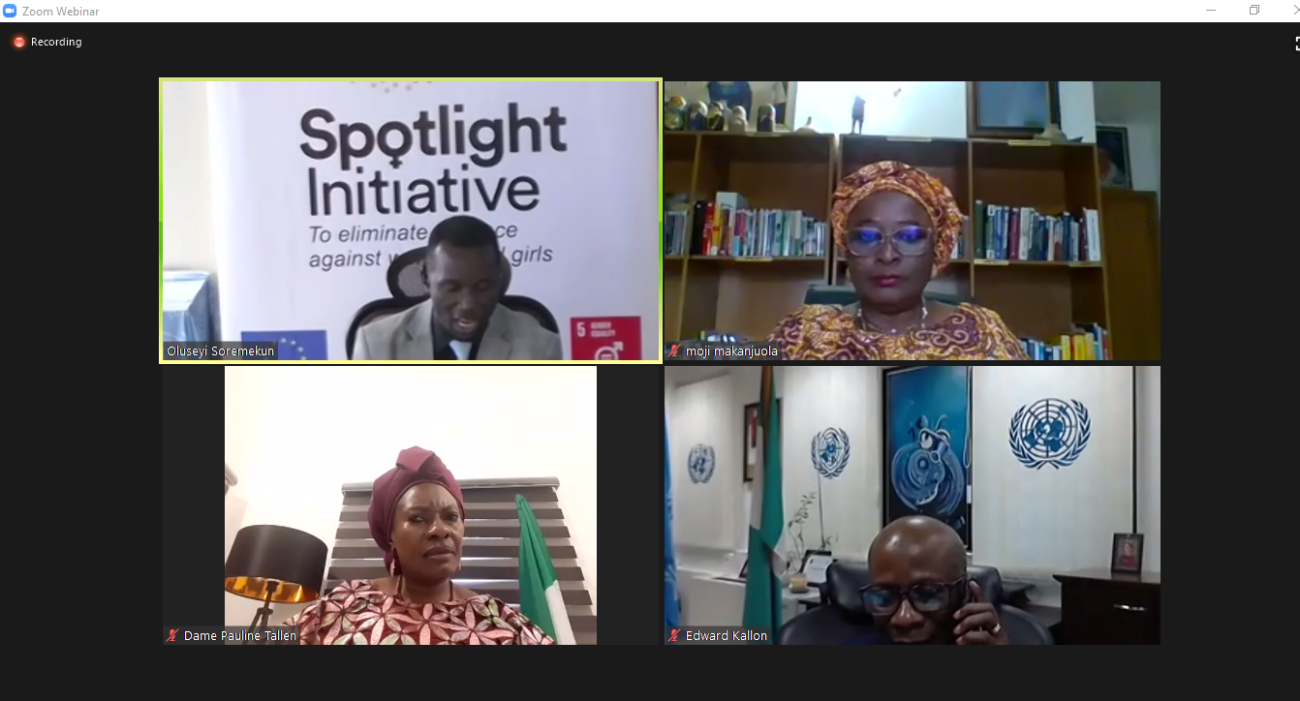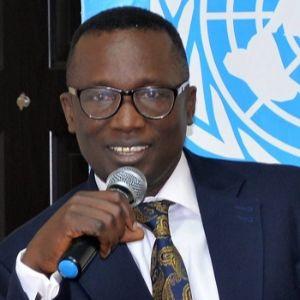Against the backdrop of increase in cases of violence against women and girls in Nigeria during the COVID-19 crisis and the subsequent declaration of a State of Emergency by the Nigeria Governors’ Forum, traditional and religious leaders in Nigeria have been called upon to deploy their influence in mobilising community action to end violence against women and girls in the country.
“We encourage and ask our esteemed traditional and religious leaders to engage effectively in facilitating dialogues at community, local government and state levels”, stated the Spotlight Initiative Accountability Framework adopted at the end of a virtual roundtable conference of Traditional and Religious leaders on Sexual and gender-based violence. According to the Framework, traditional and religious leaders committed to engendering actions to end violence and harmful practices, including female genital mutilation and child marriage, that have damaging effects on women and girls’ lives.
The conference which held on August 6, 2020, was hosted online by the EU-UN Spotlight Initiative to end violence against women and girls in Nigeria. Over 400 participants across leadership and government, academia, civil society, media were in attendance. Speakers at the event included the Speaker of the House of Representatives, Rt. Hon. Femi Gbajabiamila, represented by the Chair, House Committee on Women and Social Development, Hon. Adewunmi Onanuga; His Eminence, the Sultan of Sokoto, Alhaji Muhammad Sa’ad Abubakar, President-General of the Nigerian Supreme Council Islamic Council for Islamic Affairs, represented by HRH the 33rd Emir of Argungu, Alh. Sumaila Muhammad Mera; President, Christian Association of Nigeria, Archbishop Benebo Fubara-Manuel; Hon. Minister of Women Affairs, Dame Pauline K. Tallen; Deputy Head of the EU Delegation, Alexandre Borges-Gomes; UN Deputy Secretary General, Amina Mohammed, UN Heads of Agencies, as well as survivors, women advocates and child protection networks.
Declaring the conference open, the Hon. Minister of Women Affairs and Social Development, Dame Pauline Tallen commended President Buhari for his targeted action towards the prevalence of violence against women and girls, through the instruction to the Minister of Justice to expeditiously establish an inter-ministerial Gender-Based Violence Management Committee to respond to cases of violence against women and children in Nigeria.
In her remarks to enjoin communities to take action to end violence against women and girls, the UN Deputy Secretary-General, Amina J. Muhammed said, “For those who turn a blind eye or deaf ear saying, it’s a private matter, know that you too are accomplices to violence… Because of these attitudes, millions of women and girls face a clear and present danger of the threat of violence and rape every day... Take responsibility. Speak up for women and girls… Let’s rally our communities to say no to gender-based violence.”
Demanding that all stakeholders recognise the role and participation of women, the UN Resident and Humanitarian Coordinator in Nigeria referred to violence against women as a crime against humanity. “There is no way Nigeria will develop without the full participation of women. Why should we continue eliminating them? Why should we continue harming them?”
The Spotlight Initiative virtual roundtable builds on past engagement with religious and traditional leaders, including with the Christian Council of Nigeria (CCN) and Nasrul-Lahi-L-Fatih Society (NASFAT) on the EVAC campaign, and holding them accountable to the communique signed at a Consultative Forum held on 26 February 2016 in Lagos, Nigeria. In Nigeria, the Spotlight Initiative to end violence against women and girls is being implemented in six states including Adamawa, Cross River, Ebonyi, Lagos, Sokoto and the FCT.



